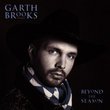| All Artists: Satyajit Ray Title: Masterworks Members Wishing: 1 Total Copies: 0 Label: Angel Records Release Date: 6/13/1995 Genres: International Music, Soundtracks Styles: India & Pakistan, India Number of Discs: 1 SwapaCD Credits: 1 UPCs: 724355549327, 724355549341 |
Search - Satyajit Ray :: Masterworks
CD DetailsSimilarly Requested CDs
|
CD ReviewsAn evocative companion of soundtracks to classic Ray films M. Bromberg | Atlanta, GA United States | 05/18/2008 (5 out of 5 stars) "From the original CD liner notes by James Ivory and Ismail Merchant: "One of the great pleasures Satyajit Ray's films gives audiences is the beautiful music they contain. This has been true from the very beginning of his career, when he asked classical music Pandit Ravi Shankar (the 'Apu' trilogy, 'Devi') and Ustad Vilayat Khan ('The Music Room') to compose and perform the music for his soundtracks. These great maestros always worked within the framework of Indian classical music; that is, music based upon ragas. However, light classical and folk songs, as well as folk tunes, were also drawn upon and provide much intoxicating rhythm and lively orchestration for Ray's scores. ... His conversation was full of allusions to Western classical music; he once called Konarak, the great 10th-century Hindu temple in South India, the B-minor Mass of Indian sculpture. Sometimes he used Western classical music for his soundtracks, with his own idiosyncratic adaptation. When the tormented wife in 'Devi' is being led to safety by her husband to the banks of the Ganges, the ominous 'music' we hear is a slow movement played backwards of a Haydn symphony. Ray felt that to use Western classical music in the normal way, except as 'source music,' i.e. music actually being performed as part of a scene, was cheating. For the orchestration he himself wrote ('Charulata,' 'The Big City,' and 'The Middleman'), he relied on the rich sonorities available in Western instruments played in combination with Indian ones -- for instance, violins and cello, trumpet and harmonium, played with Indian wooden flutes, sarangi, santoor, sarod, sitar and tabla. His melodies were always based on ragas, however, no matter what the combination of instruments might be, and the ravishing sound he wrought from this is what people think of his peculiarly individual, 'Ray-like,' music. No other film composer in India ever quite attained his effects, or gave us film music so satisfying to the Western ear." " The Impeccable Ray Soujatya Das Gupta | Philadelphia, PA, USA | 08/12/2008 (5 out of 5 stars) "While it is difficult to fathom out the extraordinary talents that this man possessed, one of the best gifts that Satyajit Ray has given to the world audiences through his cinematic masterpieces is the exquisite musical scores. I think it has lot to do with his upbringing and his early passion for music. At the age of thirteen, Ray went looking for bargains in music shops of Calcutta, and one of the treasures he found was Beethoven's 5th Symphony, and then he stumbled upon Mozart's Eine Kleine Nacht Musik. The logic, symmetry and the beauty of Mozart's music was not lost on Ray and this is so evident from the fact that he utilizes the same symmetry, economy and beauty in all his musical compositions. Ray had grown up in an atmosphere of Bengali songs and Brahmo hymns, and moreover, for any Bengali, the influence of Tagore is inescapable.
He experimented with mixing western and Indian elements in his scores. He composed a background music that belonged a particular film rather than to any recognizable tradition. In Ghare-Baire (Home and the World, 1984), he adapted western music elements along with Indian ones to complement the two influences on the characters of film. Ray was one of the best connoisseurs of Western classical music in our country, and its most reflective in all his major musical works in his films, but at the same time he had a rich knowledge and study of the Indian classical music, which is evident from his early collaborations with giants like Pandit Ravi Shankar, Vilayat Khan and Ustad Ali Akbar Khan. The influence of Indian folk music can also be found in films like Kanchenjungha, Goopy Gyne Bagha Byne and others. The highlights of his music have been the rich melody, rhythm, economy and the beautiful orchestration. His music has proved to be so functional in his films that very few film-makers have been able to achieve that kind of correlation between music and films, the way he did. Not only the greatest auteurs of 20th century cinema, I think Satyajit Ray is some kind of a `Cinematic God'! " |



